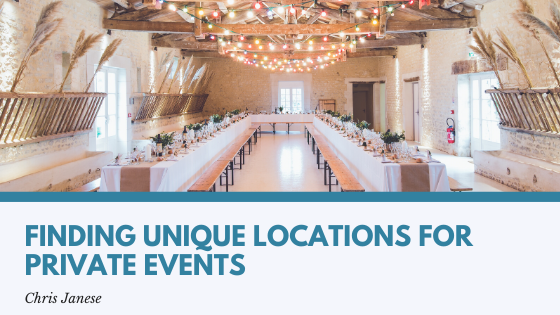Event creators are finding new ways to host events in unique venues and create events that set them apart from their competition. Since 2017, the demand for non-traditional event spaces has continued to grow. As event planners, booking events in unique venues requires going outside of the traditional box and pushes planners outside of their comfort zone.
The Benefits
Hosting an event in a unique venue will guarantee that the event will be memorable! Not only will this help boost the brand of your event planning business, but it will make attendees want to post about the location on their social media accounts! Attendees are looking for something that will stand out amongst the crowd and set the event apart from something else they’ve attended.
Picking a unique space often means that the area is 100 percent customizable and versatile. The space needs to be transformed to suit the needs of the event that is being hosted. Each space has unlimited potential for the events it can host and the themes the event can have!
How to Find the Space
Once you’ve decided to book a unique venue, the next steps include finding the right space! Before committing to anything, you should look into location or environments for the event. Does the venue need to be in a location other than the one you’re currently located in? Venue location is one of the essential parts of event planning. Venues should also be researched based on the type of atmosphere you’d like the event to have. It often helps to reach out directly to the owner of the space to find out if your event is a fit. The following unique spaces can be used to host a variety of events:
- Airport hangers
- Wineries and rustic farmhouses
- Rooftop gardens
- Art galleries or museums
- Parking garages
- Historic Houses
Warning Signs
Individuals who plan events know that there is some risk involved in working with any venue. Planning an event in a unique venue can also come with its list of warning signs. Some of the most significant warning signs and red flags come from unreliable communication, wrong or lack of insurance for the property, and issues with the contracts and paperwork supplied from the event. To avoid this, it’s important to do extra pre-planning to ensure that your event is successful.
